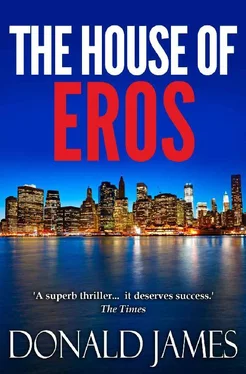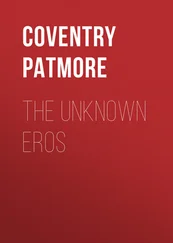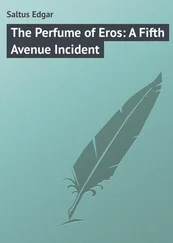She pointed to a large, decaying building set back behind iron railings, a typical nineteenth-century French barrack building. ‘That’s where I grew up,’ she said. ‘Orphanage Number 7.’
‘Were your family all killed in the war?’ he asked her. ‘Except your grandmother?’
‘My mother was killed. I believe I have an aunt in the United States.’ He noticed she made no mention of her father. For a few moments they drove in silence. ‘I’m happy to be the one to take you to this place,’ Nan Luc said. ‘For us such a monument is a great honour.’
The wind, bouncing off the jeep’s windshield lifted her hair behind her neck. He wondered who her father was.
‘For me it’s not quite the same,’ he said. ‘Since I’ve no memory of my father.’
She glanced at him quickly before turning her eyes back to the road. ‘But you know about him,’ she said. ‘Perhaps you have no recollection of him, but you have something at least, even if only the recollection of others.’
He knew by the way she spoke that she was talking about herself. ‘Your own father,’ he said, cautiously, ‘do you know if he’s still alive?’
She turned the jeep past some chickens pecking in the roadway. ‘Perhaps, some day,’ she said, ‘I will find out.’
Max steadied himself with a hand on the top of the windshield as she made a wide turn on to a dirt road wet with leaves and slush. The grey sky pressed low on the treetops on either side of the track. Somewhere ahead he could see figures moving before a cooking fire and a jumble of outbuildings that had been extended by corrugated tin roofs and packing-case walls.
‘This is Trin Lo,’ Nan said. ‘It’s still called a village but really it’s just another part of the city.’ She stopped the jeep suddenly, slewing left across the mud and leaves. ‘I’m sorry,’ she said, her smile illuminating the mournful surroundings. ‘I must call the headman.’ She hit the horn several times until a procession of children, some carrying lanterns on sticks, walked sedately from the shanty village at the end of the track. Behind them came a group of men in shorts and shirts.
Nan Luc introduced them by name. The headman she said was Mr Ky. He stepped forward and extended his hand. ‘Honour to the son of Peter Benning,’ he said.
‘You knew my father, Mr Ky?’ Max asked him as they shook hands.
‘I regret no,’ Ky said. ‘Most of the war I commanded a company in the Da Nang sector. Your father served the revolution in what was then Saigon.’ Ky gestured towards the trees by the side of the road. ‘Please come this way, Mr Benning.’
A wide path had been hacked through the bushes. Max and Nan Luc followed Ky and his delegation and were in turn followed by the children squelching barefoot along the path. After about twenty or thirty yards Ky stopped. Gravel had been strewn to the depth of an inch or two across a broad rectangle of cleared ground by the side of the track. In the centre of the rectangle lay a plain slab of reddish stone on which were incised the name, Peter Benning, the dates, 1930-1975, and a line in Vietnamese.
‘It says,’ Nan Luc stepped forward, ‘An honoured comrade of the War of Independence.’
Max nodded and walked to the side of the stone. He had no way of telling whether the emotion rippling through him was real or not. He raised his eyes past the red stone. The outline of a house was just visible through the trees. Even in the dusk he could see, from the black holes where the windows had once been, that it had been gutted by fire.
‘The house,’ he pointed to the burnt out villa. ‘Who lived there?’
‘For some years your father lived there,’ Ky said.
‘Alone?’
‘The village people say that from time to time they saw a companion. But your father was not often at the house.’
‘Can I go and see it?’
‘Sadly there is now no trace of his occupation. But there are plans to make of it a small museum to his memory. For the present there will be a ceremony here beside the grave. There will be an honour guard and photograph for the international press.’
Max looked from Ky’s face to the stone and back to the leathered expressionless features of the headman. Then he turned to Nan Luc. ‘What does this inscription on the side say?’
‘In English it sounds odd,’ she said in some confusion. ‘Perhaps a little flowery.’
‘That’s OK,’ he said.
‘It reads: A true hero of the people who delivered the Vietnamese past from the hands of the convicted traitor Quatch.’
Max stared at the flowing writing on the stone. The convicted traitor Quatch! Before Quatch is even brought to trial? He turned to face her. ‘I think you believe that in the West we were all born yesterday.’
‘I don’t understand,’ she said in alarm.
‘Thank you, Mr Ky.’ Max nodded brusquely to the headman and strode back towards the jeep.
Nan followed quickly after him. He swung himself up and stood in the seat well as she got up behind the wheel. ‘Let’s find somewhere we can get a drink,’ he said. ‘Not the hotel.’
* * *
‘You’re angry.’
‘Of course I’m angry,’ he said. ‘I get the feeling that the purpose of that monument has not much to do with my father and a lot to do with underlining Quatch’s guilt. What happened to Van Khoa’s fair trial? Maybe Quatch is guilty of all he’s charged with and more. But when the state orders a stonemason to chip out the verdict before the trial even begins, I wonder what the hell all these Western newsmen are doing here. I’ll pass that on to the newsmen. Perhaps you’ll pass it on to Van Khoa?’
They sat in a narrow courtyard. Under a bamboo awning bare-bulb lights threw shadows across their faces. An old woman served them two mugs of weak coffee.
He felt the sudden icy chill in her voice. ‘Perhaps you believe that all the charges against Quatch are fabricated for political reasons, Mr Benning?’
‘What the hell do I know?’ he said. ‘I just thought that guilt or innocence was a matter to be decided by trial.’
‘Listen,’ she said carefully. ‘Corruption has been part of Vietnamese life for centuries. The French took it over from the emperors, the Americans took it over from the French. Some people in this government, people like Van Khoa, believe it must be eradicated.’
‘However doubtful the means?’
‘Be more forgiving, Mr Benning. What you’ve just seen is a blunder of a primitive system of justice. But I can promise you, I know Van Khoa. He aims at justice.’
‘OK,’ he shrugged doubtfully.
‘Van Khoa is convinced Quatch is guilty of the charges against him.’
‘Are you?’
She met his eyes. ‘I believe Quatch capable of any crime you can imagine.’
‘Is that what your grandmother told you?’
‘No.’
He hesitated. ‘You mean you know that from your own experience?’
‘Yes.’
He looked into her wide eyes, knowing that she had entrusted him with a confidence which, however little understood, bound them together.
In the heavy early morning rain the gleaming ancient green Paris single decker looked misleadingly new. It was more than half full of foreign journalists as Max got in outside the hotel. The Americans settled down to play cards at the back of the bus; Hunter and a British cameraman talked about cricket; the French discussed the dinner they had been subjected to the night before and Max sat alone in a front seat. The interpreters and the two men from the Vietnam Press Agency had left by separate bus an hour before.
The first part of the journey south-west, crossing the Mekong estuaries to Can Tho, perhaps a hundred and fifty kilometres in all, took ten hours. Though most of the narrow-laned highway was asphalted, they were obliged, for reasons no one even tried to explain, to take hour-long detours. Off the highway the slashing, incessant rain turned the single-track, boarded roads into quagmires as yellow mud was forced up between the split logs of the road surface by the weight of the bus. Slithering dangerously from side to side they drove between patchwork fields, or thin stunted woods, the blue black humps of the hills always to the north.
Читать дальше












